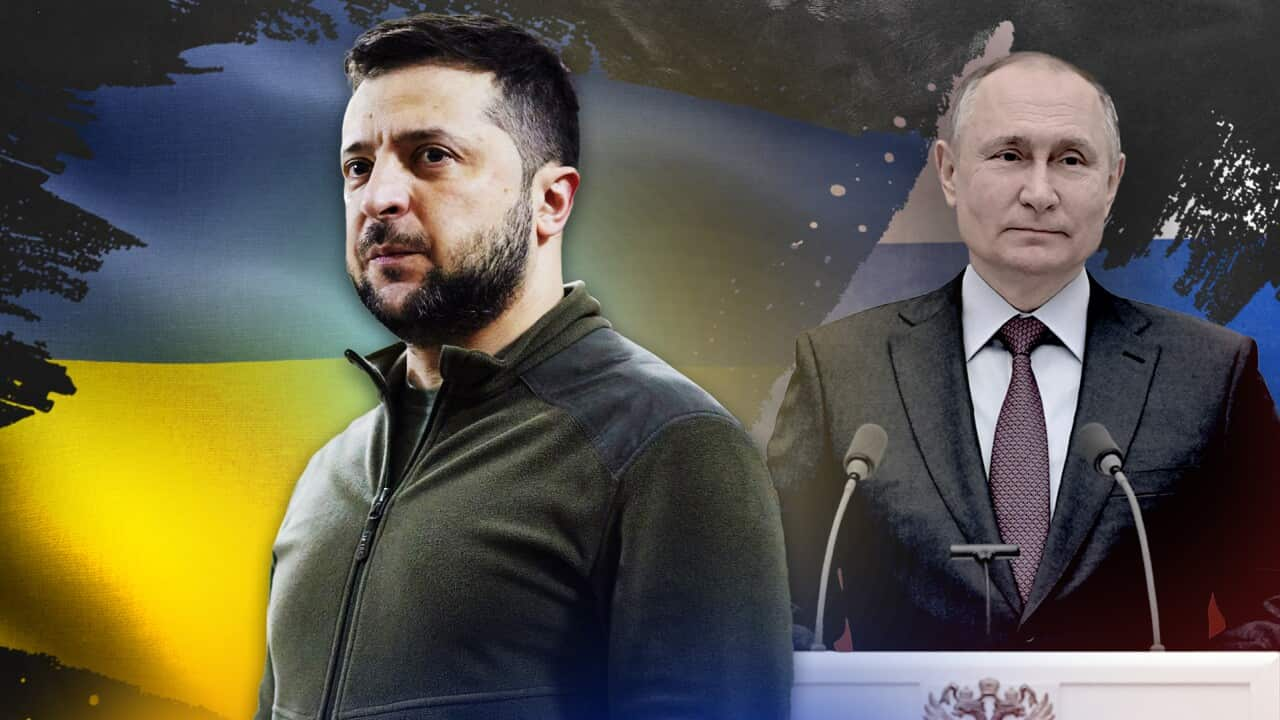Ukrainian President Volodymyr Zelenskyy has visited troops on the frontline in Ukraine's northeastern Kharkiv region, his first official appearance outside the Kyiv region since the start of Russia's invasion on 24 February.
"You risk your lives for us all and for our country," the president's office website cited him as telling the soldiers, adding that he handed out commendations and gifts.
Mr Zelenskyy's chief of staff Andriy Yermak wrote on the Telegram app that the president had also visited Ukraine's second-largest city of Kharkiv.
Several explosions were heard in the city of Kharkiv on Sunday hours after Mr Zelenskyy's visit.
A large plume of dark smoke could be seen rising northeast of the city centre.
Kharkiv has been subjected to Russian shelling in recent days after several weeks of relative quiet.
Mr Yermak said Mr Zelenskyy toured destroyed residential buildings, noting that their replacements had to be built with bomb shelters in place.
The president's chief of staff added that 31 per cent of Kharkiv region's territory was currently occupied by Russia and a further 5 per cent had been taken back by Ukraine having been occupied earlier.
Meanwhile, the European Union failed on Sunday to agree on an embargo of Russian oil but diplomats but will still try to make progress ahead of a Monday-Tuesday summit on an exemption for pipeline deliveries to landlocked central European countries, officials said.
However, a senior EU diplomat said there was "still too much detail to sort out" to hope for an agreement before EU leaders gather in Brussels on Monday afternoon.
The proposed sanctions on oil imports is part of the EU's sixth sanctions package on Russia over its invasion of Ukraine.
The package includes cutting Russia's biggest bank, Sberbank , off from the SWIFT messaging system as well as banning Russian broadcasters from the EU and adding more people to a list of individuals whose assets are frozen and who cannot enter the EU.
The whole package has been held up by Hungary, which says an oil embargo would be a body blow to its economy because it cannot easily get oil from elsewhere.
Slovakia and the Czech Republic have expressed similar concerns.
Talks on the oil embargo have been going on for a month with no progress and leaders had been keen to reach an agreement for their summit to avoid looking disunited in their response to Russia.
To break the deadlock, the European Commission proposed that the ban apply only to Russian oil brought into the EU by tankers, leaving Hungary, Slovakia and the Czech Republic to continue to receive their Russian oil via the Russian Druzhba pipeline for some time until alternative supplies can be arranged.
Hungary supports this proposal but talks on Sunday snagged on EU financing that the country wants to boost oil pipeline capacity from Croatia and to switch its refineries from using Russian Urals crude to Brent crude, officials said.
This will be discussed by EU envoys on Monday morning along with the problem of how to ensure fair competition given the higher prices that member states reliant on shipped Brent crude would face as a result of the sanctions.











